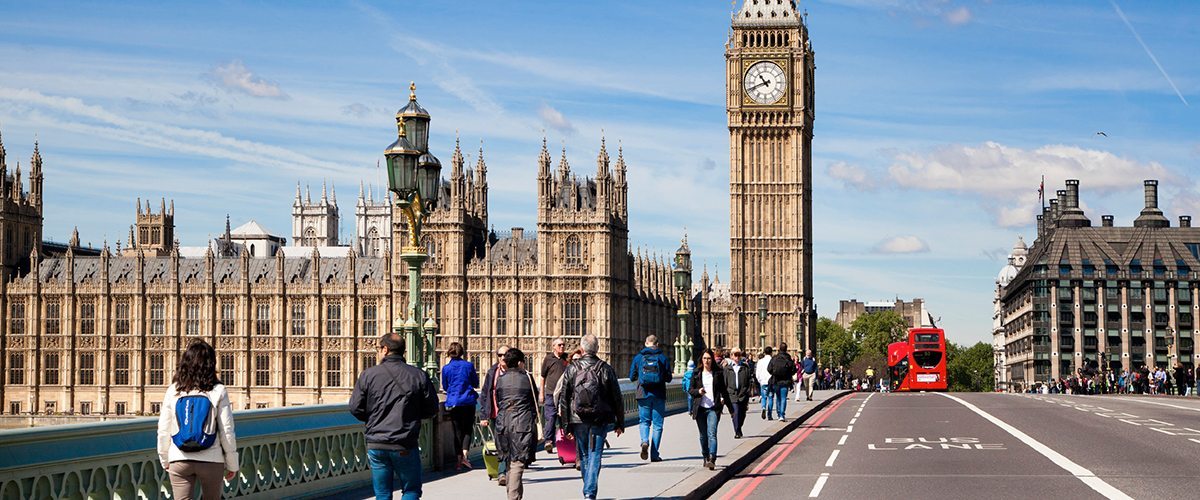[vc_row][vc_column][vc_column_text]
A United Kingdom cross-party group composed of politicians released a report acknowledging the medicinal properties of cannabis and calling for legalization of medical marijuana.
Cannabis could play a therapeutic role in the treatment of some conditions and should be legalized, according to a report by the United Kingdom’s All-Party Parliamentary Group on Drug Reform. The informal cross-party group, made up of members of both houses of Parliament, analyzed the evidence from over 20,000 scientific reports and 623 patients using medicinal cannabis and concluded that it was clear the substance offered medicinal benefits. The group then made a forceful call for legalization.
“Overall, we conclude there is considerable literature demonstrating the efficacy of cannabis and/or available cannabis products in a number of important indications,” the report reads. “We consider that the evidence firmly suggests that cannabis should be a legal product for medicinal use,” it adds later.
The current laws in England and Wales prohibit cannabis possession and use, classifying it as a Schedule 1 Class B drug with possession susceptible to an unlimited fine or a maximum jail sentence of five years. Cultivating cannabis is punishable to a maximum of 14 years in jail. The government also fails to acknowledge marijuana as having any therapeutic value, though law does allow patients with multiple sclerosis to take a cannabis-derived medicine for treatment.
However, the APPG report found “good evidence” that medical cannabis helps alleviate chronic and neuropathic pain, spasticity, nausea and vomiting and anxiety. The report also found “moderate evidence” that cannabis helps with sleep disorders, poor appetite, fibromyalgia, post-traumatic stress disorder and symptoms associated with Parkinson’s disease.
“Cannabis works as a medicine for a number of medical conditions,” said APPG co-chair Baroness Molly Meacher. “The evidence has been strong enough to persuade a growing number of countries and US states to legalise access to medical cannabis. Against this background, the UK scheduling of cannabis as a substance that has no medical value is irrational.”[/vc_column_text][/vc_column][/vc_row][vc_row][vc_column][vc_single_image image=”17365″ img_size=”1200×250″ onclick=”custom_link” link=”https://www.medicalmarijuanainc.com/education/”][/vc_column][/vc_row][vc_row][vc_column][vc_column_text]The report urged the Home Office to reclassify cannabis from schedule one to schedule four. Being a schedule four substance would put cannabis in the same category as steroids and sedatives and allow for doctors to prescribe it to patients for therapeutic purposes.
“We analysed over 20,000 scientific and medical reports. The results are clear,” said Professor Michael P. Barnes, an expert in rehabilitation medicine that was commissioned by the group for a report of medical cannabis. “Cannabis has a medical benefit for a wide range of conditions. I believe that with greater research, it has the potential to help with an even greater number of conditions. But this research is being stifled by the government’s current classification of cannabis as having no medical benefit.”
The APPG report also found that tens of thousands of people in the UK are knowingly breaking the law to use cannabis for symptom relief. Sixty-seven percent of patients illegally taking cannabis tried conventional medicines first. Seventy-two percent buy cannabis off the street and 20 percent grow their own. Thirty-seven percent of patients self-treating themselves with cannabis don’t tell their doctor they’re doing so.
“What you’ve got to do if you’re trying to make a political case for this is demonstrate that the proposed alternatives are safer than the status quo,” Steve Moore, co-founder and director of drug policy reform think tank Volteface, told Huck Magazine. “This [report] is the most significant milestone in the passage of reform yet and when [the process of legalisation] is complete, this will be looked back on as a seminal moment.”
The Home Office, however, says there are no plans to legalize cannabis and consider it a “harmful drug.”
“I would like to think nobody could refute the wealth of evidence presented in the report,” said Jonathan Liebling, Political Director of advocacy group United Patients Alliance (UPA).
This active acknowledgement for cannabis’s medicinal benefits and call for the amendment of laws in the UK is the latest in what has been a busy year for cannabis legalization efforts internationally. Just recently, Australia’s regulatory agency for medical drugs and devices made the formal decision to legalize medical marijuana throughout the country. Multiple polls have shown that a significant shift toward support for marijuana legalization has happened in New Zealand, with one finding that 65 percent of New Zealanders now support legalizing recreational use and 79 percent supporting allowing cannabis for medical purposes. Additionally, Medical Marijuana, Inc.’s cannabidiol (CBD) hemp oil was selected as the first-ever cannabis product approved as import into Mexico and Brazil as a medical prescription.
You can learn more about UK’s cannabis laws on our education page. Keep up with the ever-developing cannabis legislative changes in the United States and internationally by visiting our news feed.[/vc_column_text][/vc_column][/vc_row]






